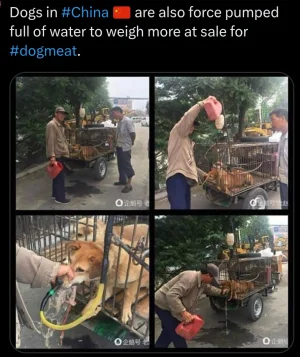- Joined
- Jul 1, 2024
- Messages
- 4,793
- Likes
- 25,174
View: https://twitter.com/CscrTw/status/1893348518510649456?s=19
Nowadays beef dishes are commonly available in China but that wasn't always the case. This phenomenon is as late as mid last century before which there were strong taboos on beef consumption on the pain of death during the Qing Dynasty rule & before.
Arguably this is one of the chief reasons for the Han vs Hui wars during the late Qing dynasty era resulting in millions of deaths with the Huis insisting on cow slaughter & the Han resisting it backed up by the Qing dynasty court officials & army.
It's truly tragic to see how far the Han has fallen in his attempts to distance himself from his own past & embrace "modernism." Truly the modern Han has lost his soul to the extent that the current generation may not even be aware of these taboos & their pen roots.




